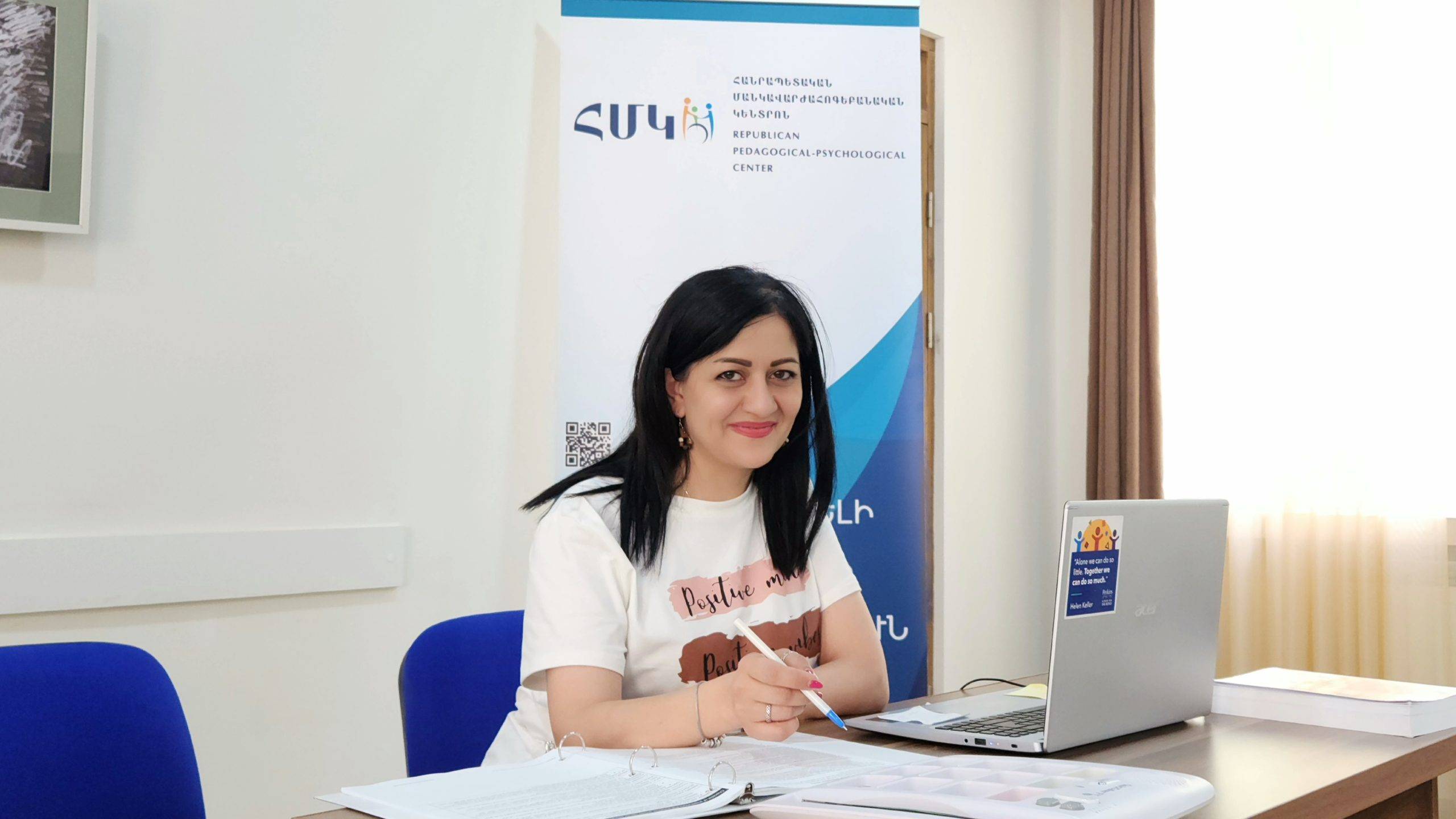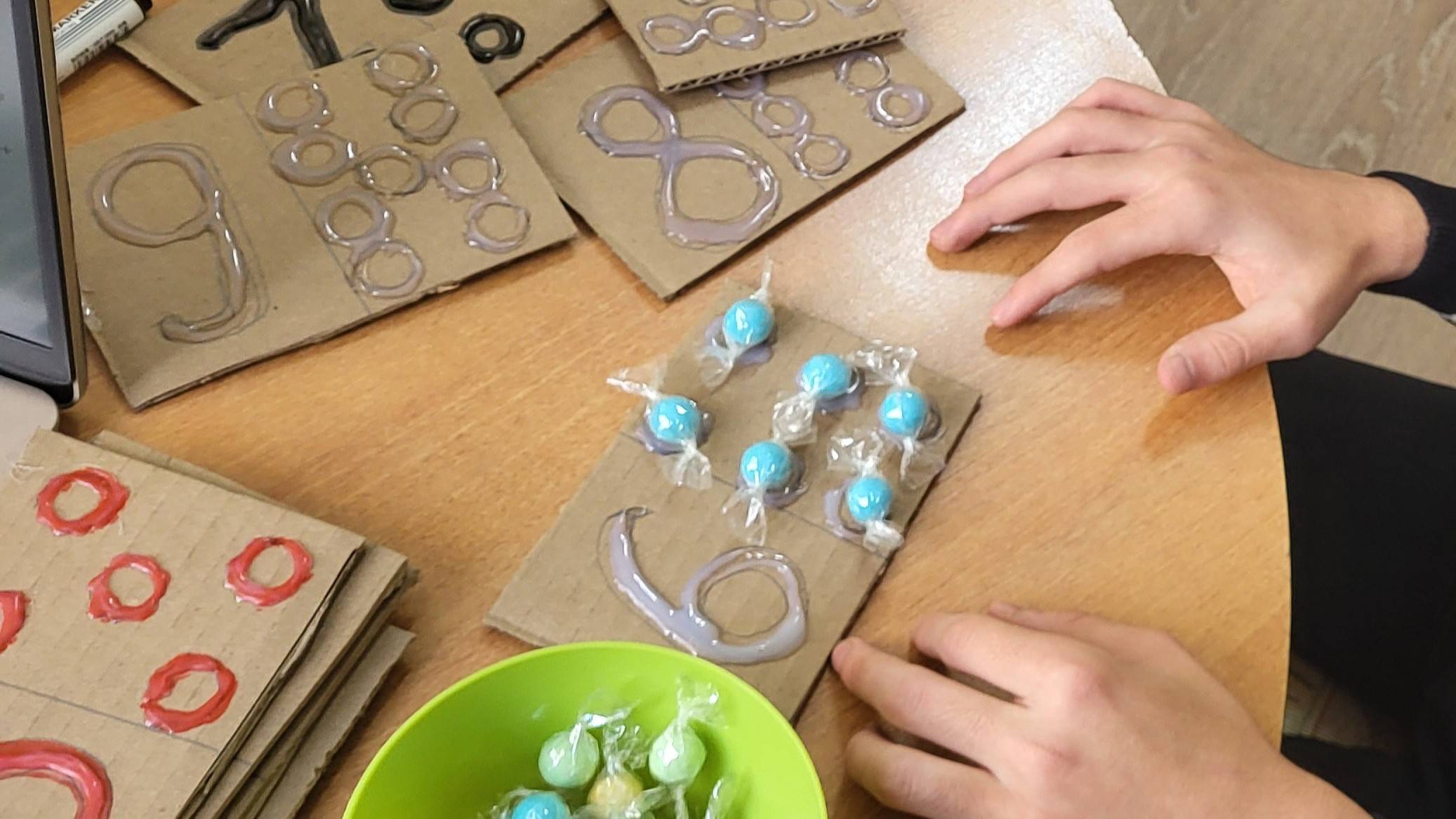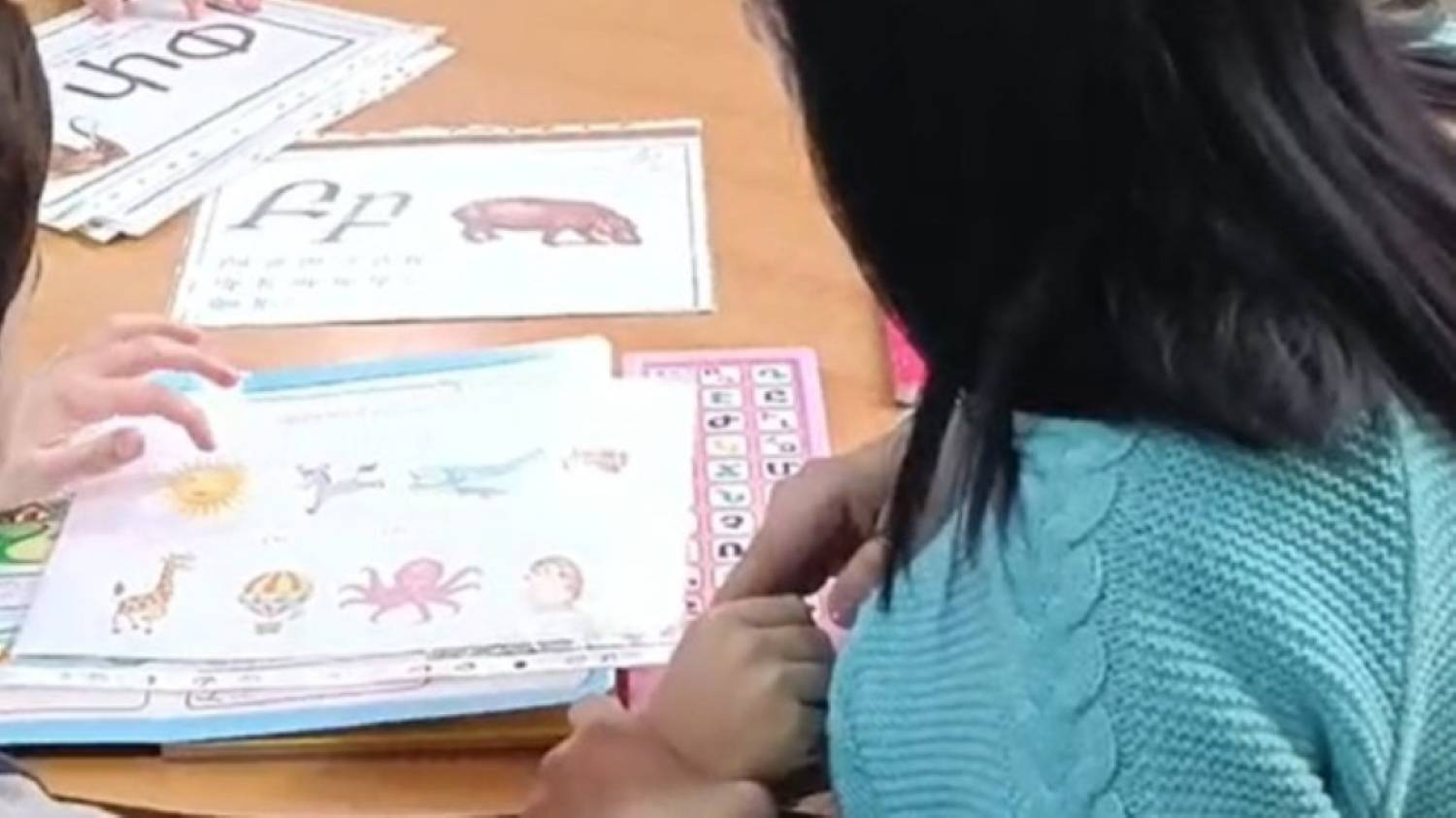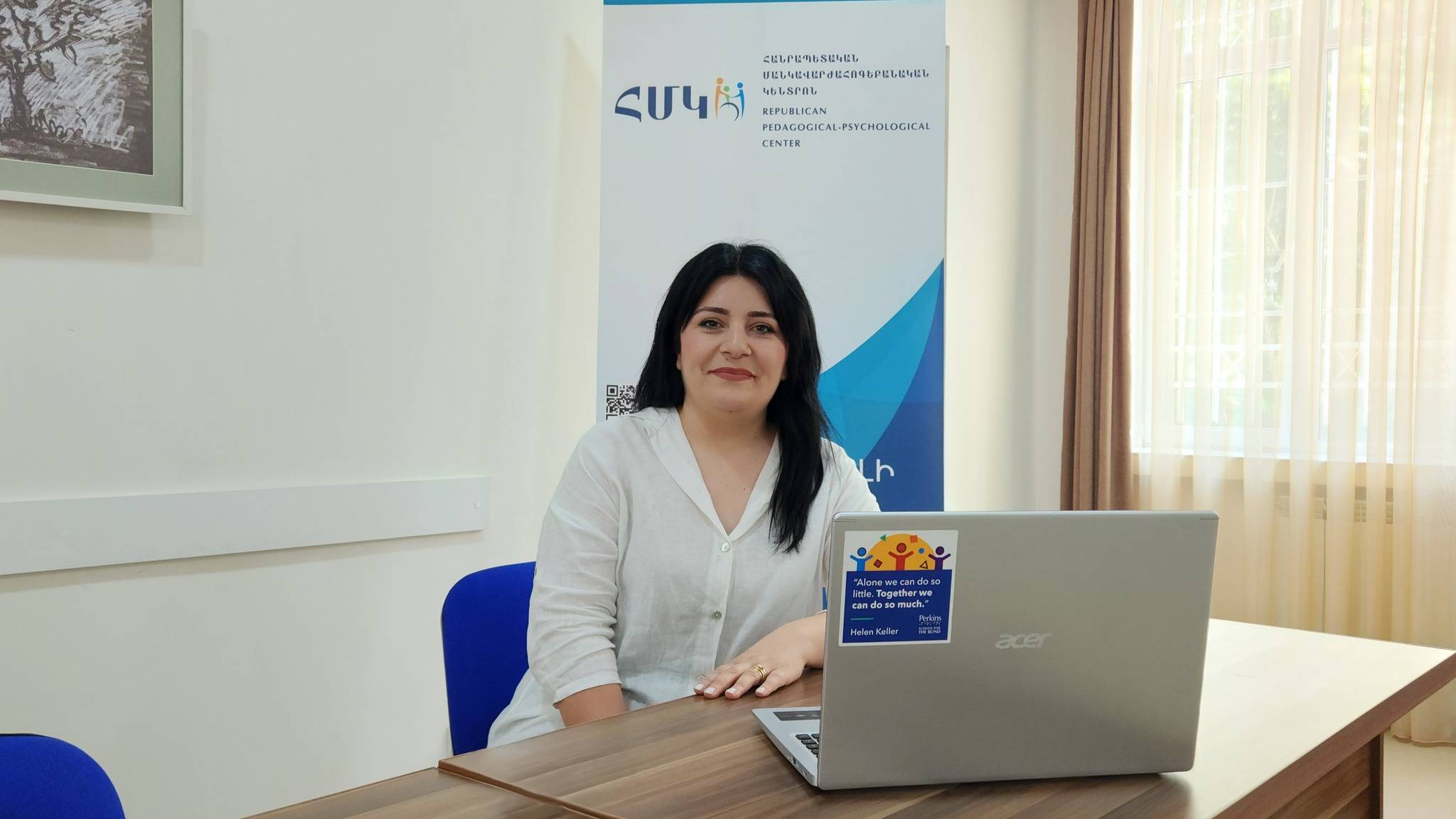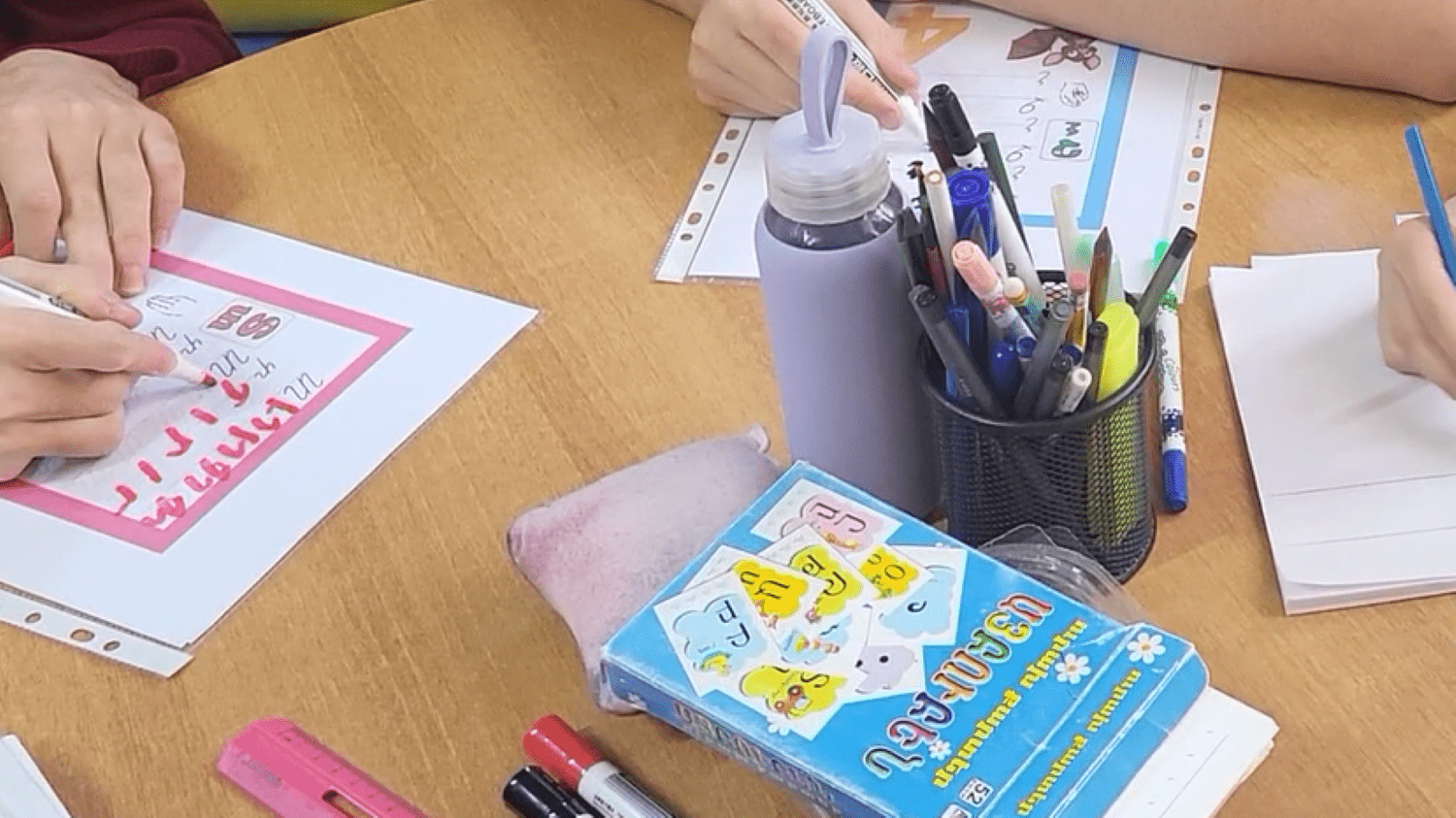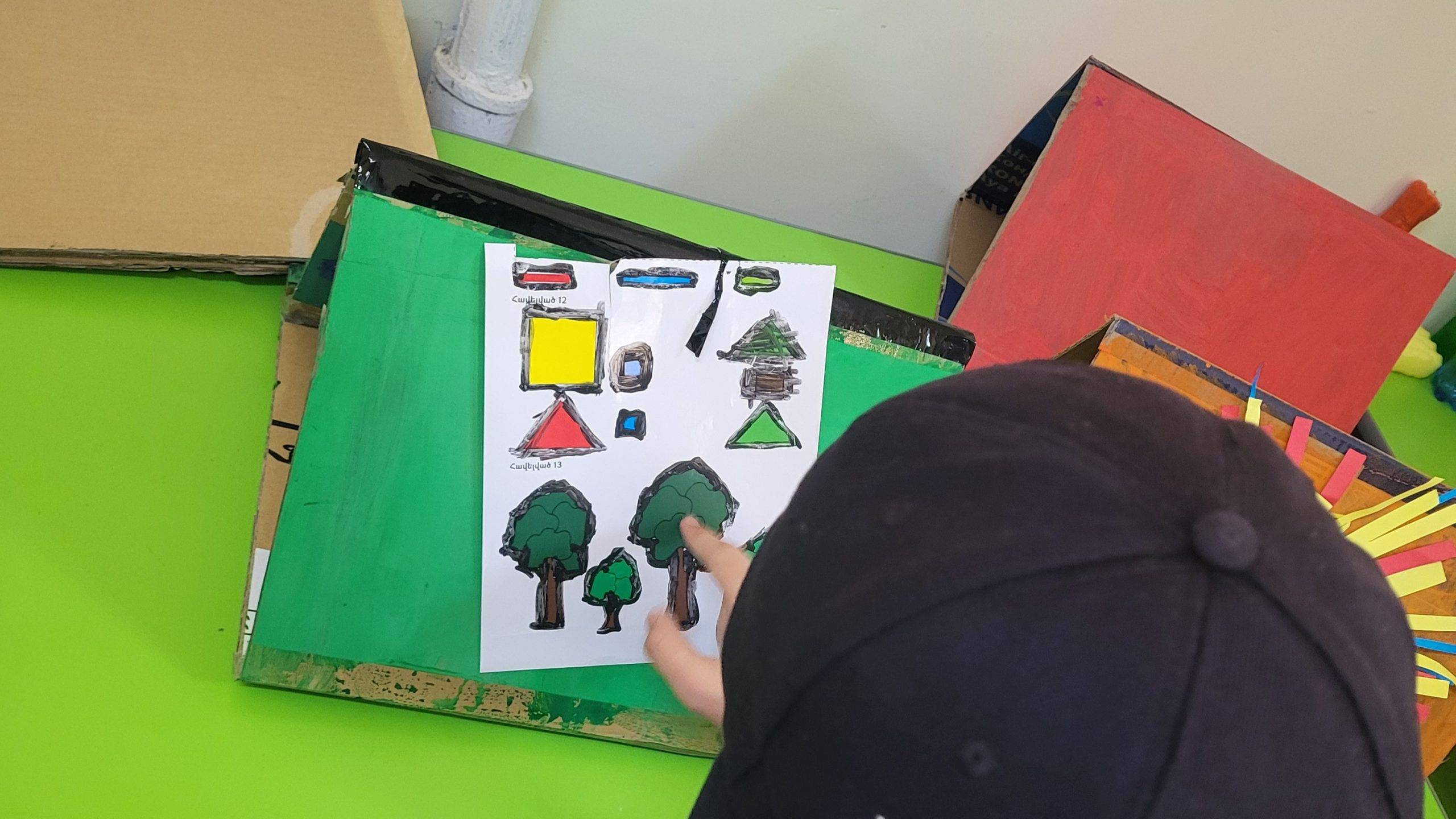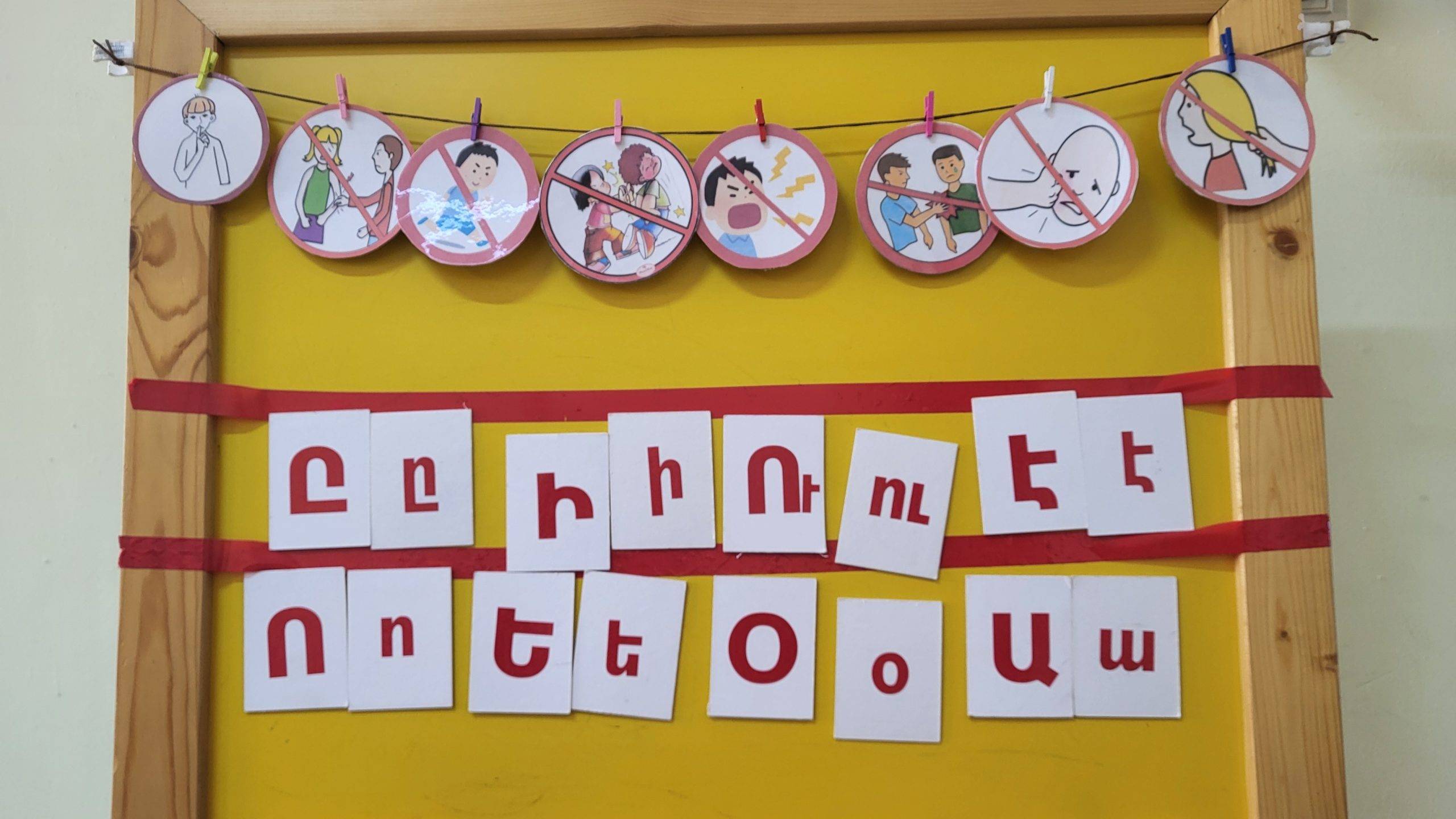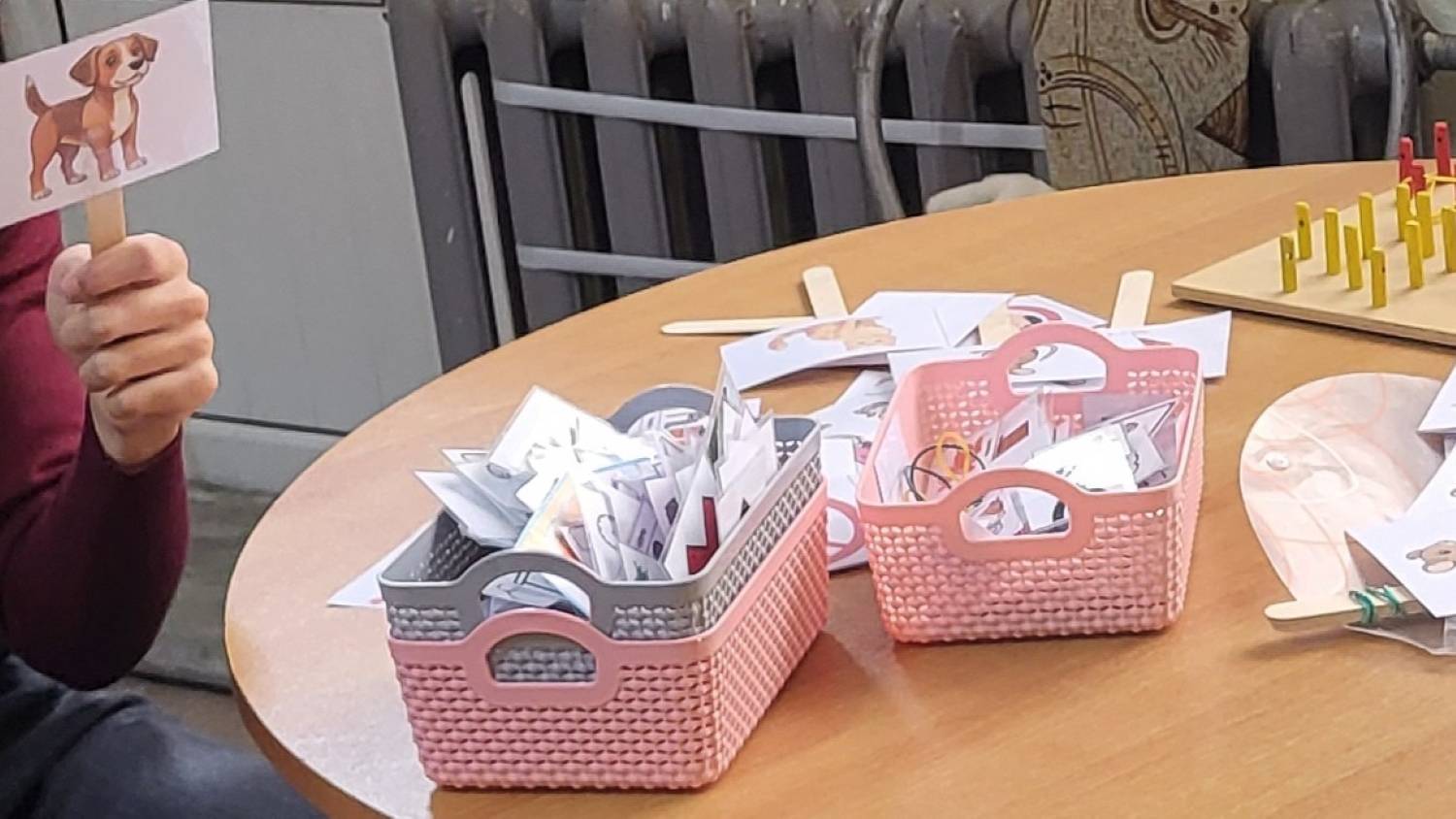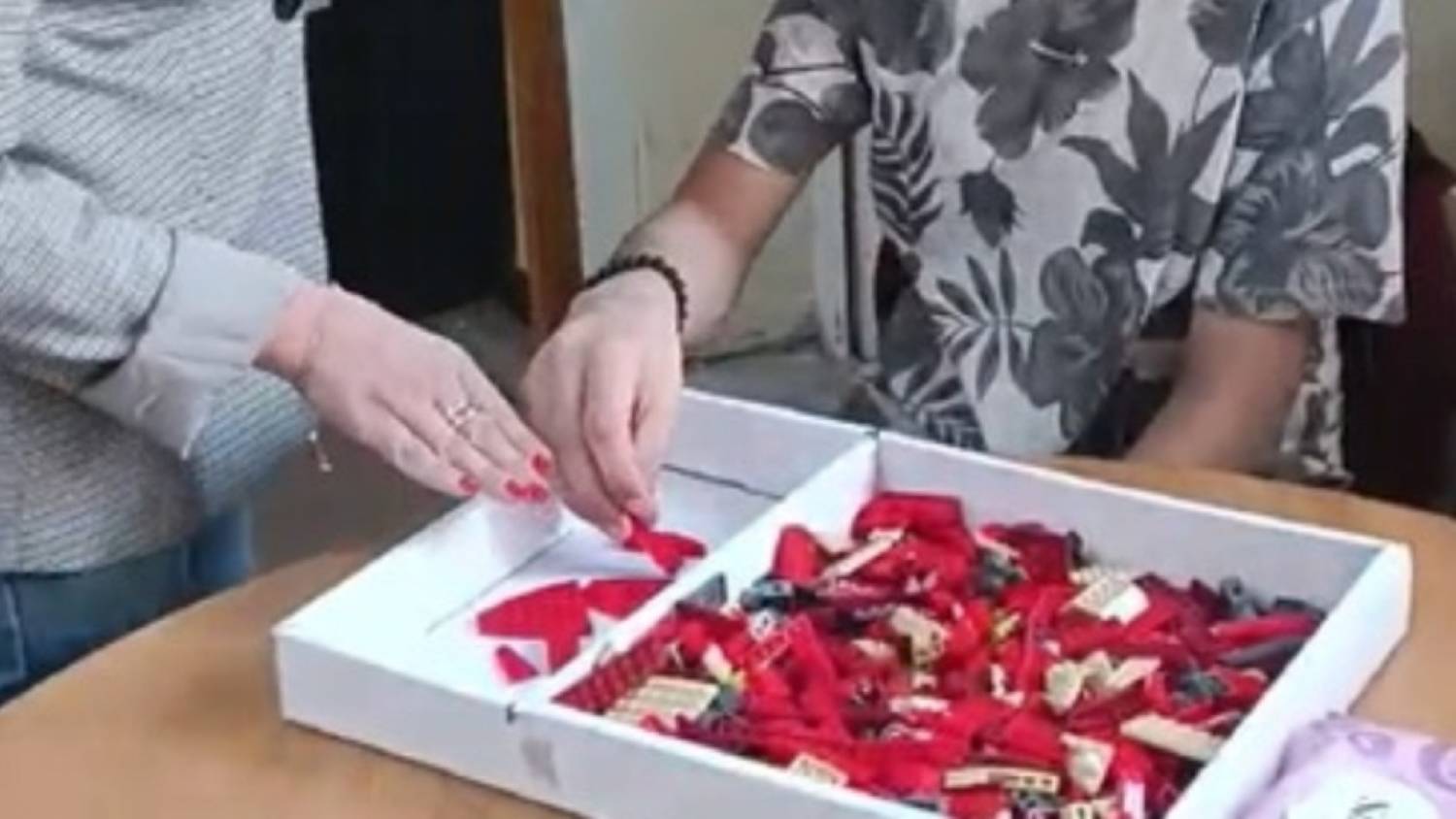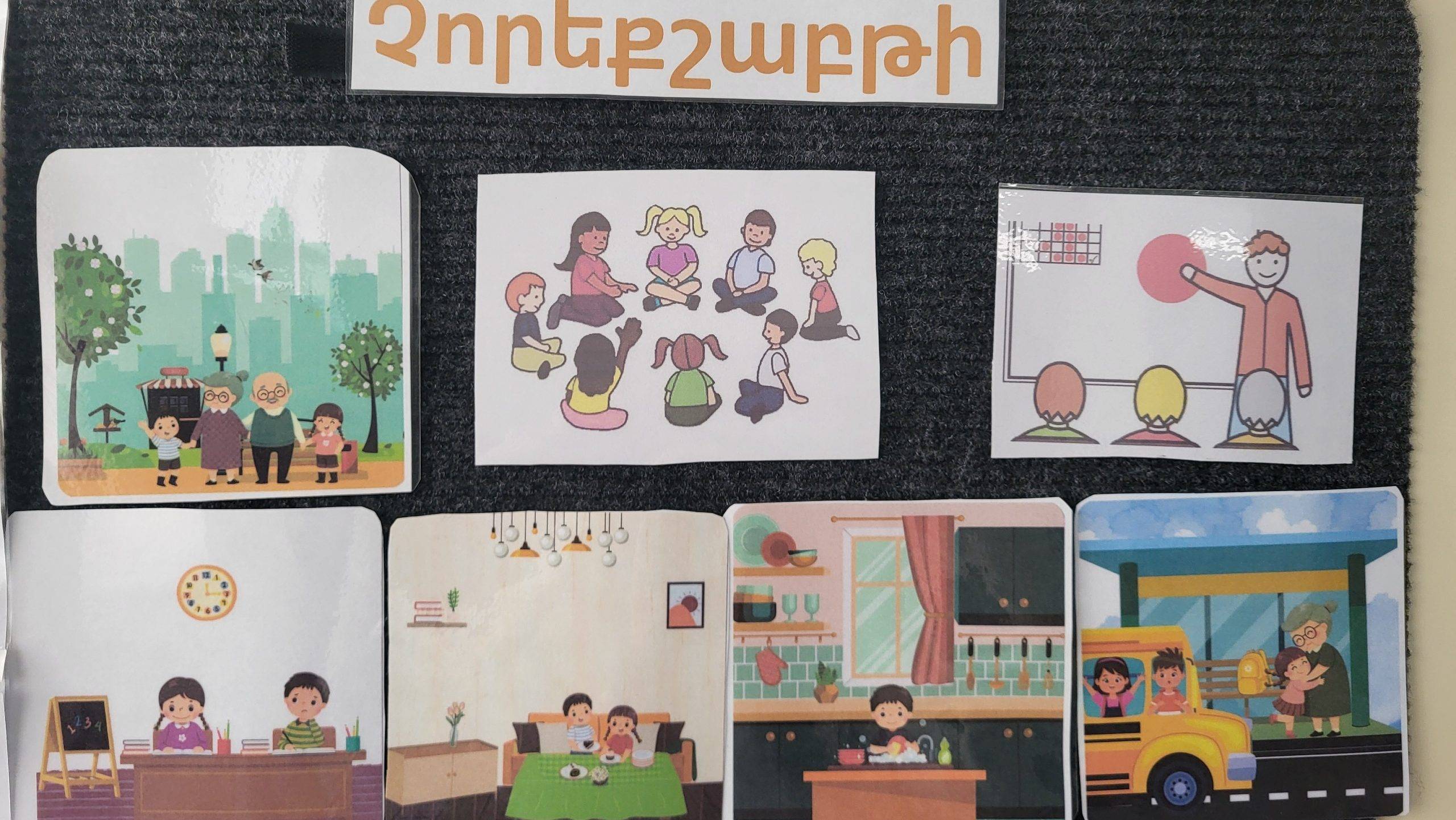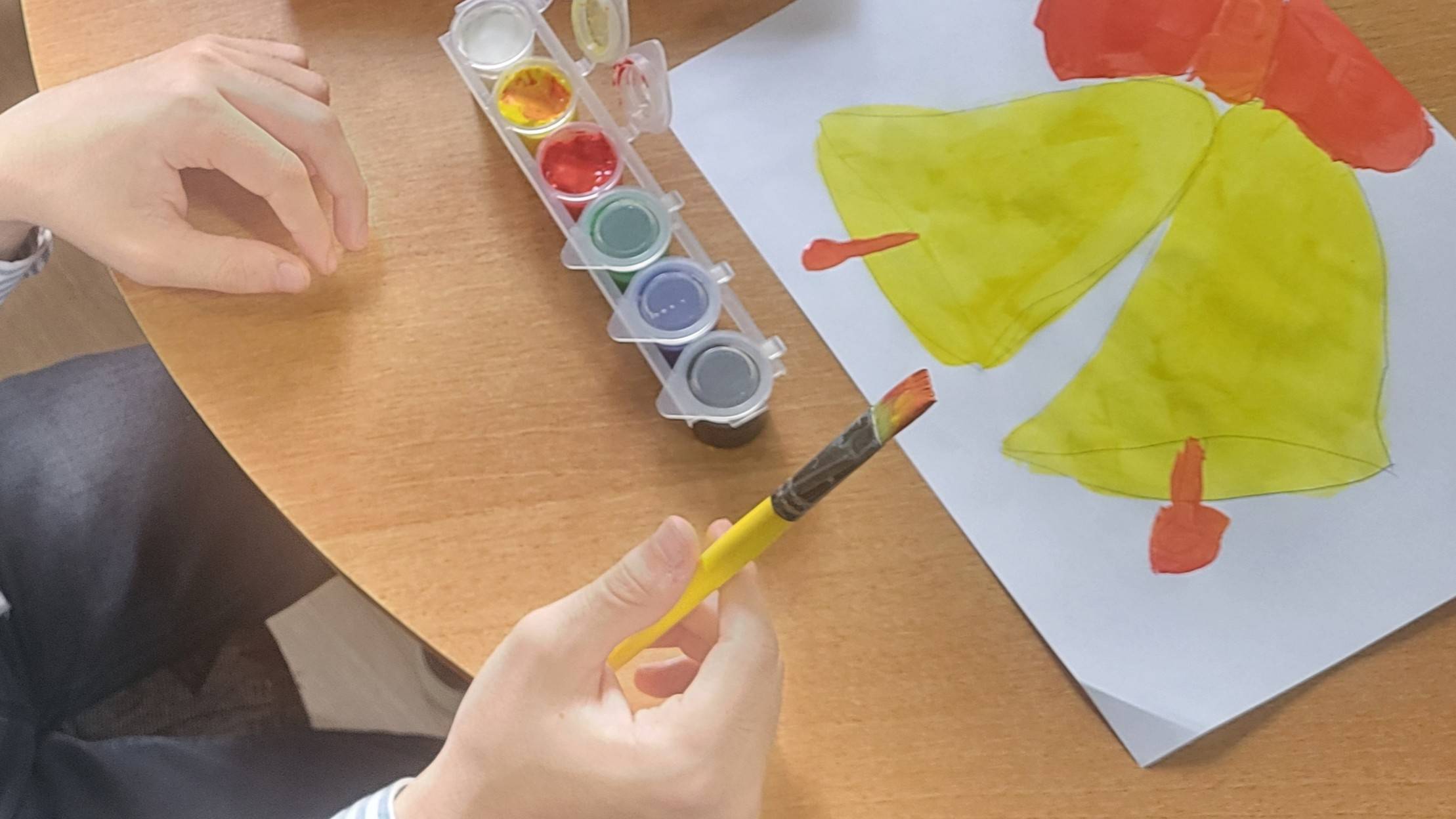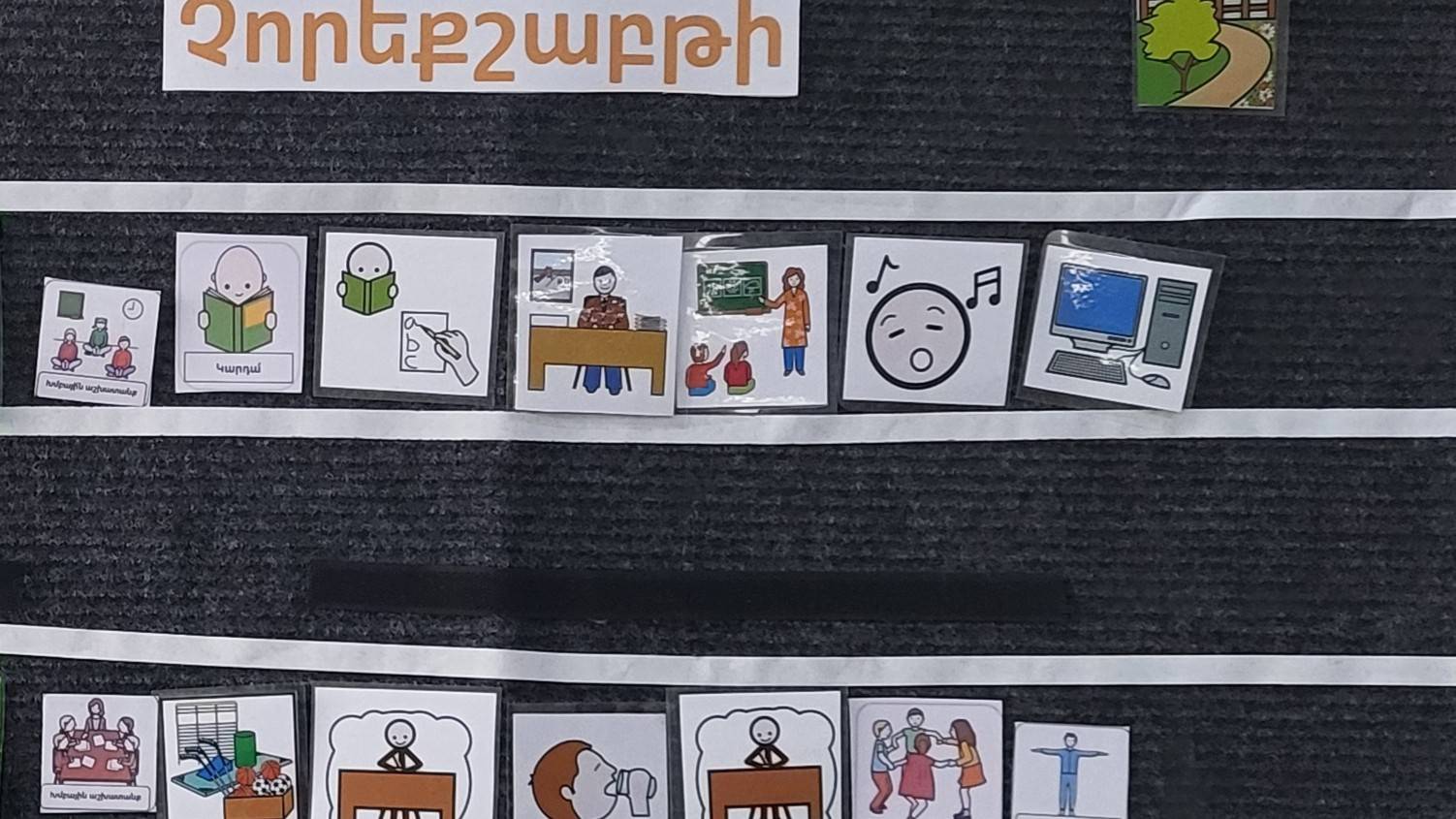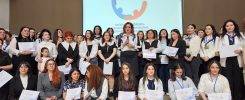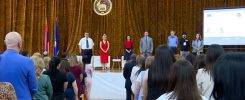(Child’s name has been changed)
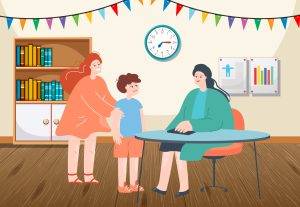
Levon is finishing elementary school this year. He is attentive, consistent, disciplined, loves to smile, and talk about the weather. He feels confident and prepared for the life that lies ahead of him, not only as a graduate, but also as a person who has overcome personal challenges along the way, which differ from others.
Levon’s mother now speaks enthusiastically about her son, his progress, and his daily routine: “Over the years, I could never have imagined that a time would come when Levon would be the one reminding others what to do. But today, he looks at the schedule on the wall and tells the specialists: ‘Today, Anna has to clean the chairs, I will water the plants, and then I will go see the psychologist.’”
Levon takes care not only of the cleanliness of his surroundings but is also attentive to everyone else. He speaks up when someone forgets to wipe the table or wash up in a calm and non-disruptive voice, while also setting an example for others.
He needs 3rd degree support from pedagogical-psychological services due to mental (intellectual) disability, uses a walker for mobility, and also needs assistance from another person to move around in an adapted environment and an unfamiliar area. With the help of his mother, he was able to overcome challenges and attend school, participating in classes to the extent of his abilities.
When schools switched to remote learning for an extended period of time due to the COVID pandemic, Levon, like all children, stayed home. The pandemic receded and classes resumed, but it was difficult for Levon to attend school. It had become something like a daily challenge for him.
The school environment hadn’t changed—the same third floor, and the same staircases without an elevator. But Levon’s mother was exhausted as she struggled to get her son to class every morning.
The lessons were a new challenge for Levon: he couldn’t understand the assignments. When the teacher asked a question, he responded, but on a completely different topic: he started talking about dreams he had, the weather, or TV characters. He smiled a lot and talked a lot, but it seemed that the smile was a shield that protected him from a world that constantly placed incomprehensible demands on him. Some of his classmates remained silent, while others laughed.։
The teacher was upset, and the mother was desperate: “It seemed as though Levon no longer ‘fit in’ in the classroom. Going to school had become exhausting not only physically, but also psychologically.”
It felt as though there was no way out…
And so, the “Resource-Classroom” Pilot Program, implemented in cooperation with the Republican Pedagogical-Psychological Center, UNICEF, and the “Perkins International” organization, was launched at school. The Pilot Program is aimed at ensuring high-quality and accessible education for students with special educational needs in general educational institutions of the Republic of Armenia, in an educational environment appropriate to their needs, including those receiving home-based education, who have special educational needs because of communication and mental (intellectual) disabilities and require 3rd or 4th degree support from pedagogical-psychological services. Levon, along with several other students from the school, is included in the Program.
The Resource-Classroom was located on the first floor, making it easily accessible for Levon. But most importantly, it provided the conditions and environment that would instill confidence in Levon and reveal his abilities. There were no special requirements here. What mattered most was the goal: Levon should once again feel that he was part of the school and the school life. The room had clear and understandable educational posters with pictograms, and the environment was organized in a way that would contribute to the inclusion of students as much as possible.
In the Resource-Classroom, Levon worked with Lusine Hakobyan, a trainer-specialist and special educator at the Department of Training and Methodological Support of the Republican Pedagogical-Psychological Center.
Lusine shares her story:
“Levon’s biggest challenge was his lack of self-confidence in his abilities; he constantly insisted that he couldn’t do anything, refused to answer or even look at us when asked a question, or simply said he didn’t know. The concern was not that he might fail (since we had a clear understanding of his abilities), but rather that we might not be able to cooperate with the adults—school staff and parents—who were to support us. Fortunately, we didn’t face that problem.
We began our work with small steps of success and small tasks, presenting even the most basic skill as an achievement and a successful step. Levon started to see that he was capable of doing certain things, which raised his self-esteem. Little by little, he began to respond to his environment: at first he smiled, then he started asking questions, and one day he simply suggested: “Next time I will bring my drawings and show them to the others.”
Gradually, Levon began to acquire daily living skills: organizing his belongings in his backpack, cleaning his surroundings, taking care of plants, cutting vegetables while cooking, counting the tableware, and helping with cleaning. He even learned to do shopping—the calculator with tactile buttons became his reliable assistant in this matter. Climbing the stairs was not easy, but the teachers had drawn up a flexible individual schedule, according to which Levon would join the main class two or three times a week, accompanied by his mother and the specialists from the Resource-Classroom. It can be noted that the expectations were fully met.
By observing the child and understanding his strengths, difficulties, and abilities, we set realistic goals that were fully achieved. We initially planned small steps because we knew that time was limited. However, we didn’t know whether the Program would continue or not. Of course, if we had the opportunity to work longer and set longer-term goals, perhaps we would have achieved even more significant results. As for the challenges… I believe the greatest challenge was the pre-existing stereotypes about the child, that he cannot and will not succeed. Moreover, the mindset that classes would be of no benefit to him existed among both parents and teachers. And that was the only challenge.”
WHAT DID THE “RESOURCE-CLASSROOM” PROGRAM GIVE LEVON?
The effectiveness of the Program is evidenced by the daily calls from parents, asking for it to continue. They state that in 8 years, their child had not achieved such success as in this one year.
“We have received the same feedback from the school staff as well,” says Lusine. “These positive opinions indicate that the set goals and the actions implemented within the framework of the Program were justified, since the child achieved results that no one had expected from him. Sirarpi Khachatryan and other specialists were also involved in the process, thanks to whose dedicated and collaborative efforts the Program was a success.”
And indeed, this year was a turning point in Levon’s life.
Levon still doesn’t solve math problems or write essays. However, through the global reading method, he has learned and now reads words and pictograms necessary for everyday life. He retells daily events in sequence, listens to others without interrupting, and has become more functional in daily life. Now, when he talks about the weather again, the class listens to him and accepts him as one of them, not as a disruptive voice.
In reality, Levon’s return to the classroom did not begin with the stairs, but with the change that took place within him. And that is where the real inclusion starts. His smile is still there, but it carries a different meaning: it is not a shield anymore, but a reflection of inclusion, victory, and confidence.
03.06.2025

